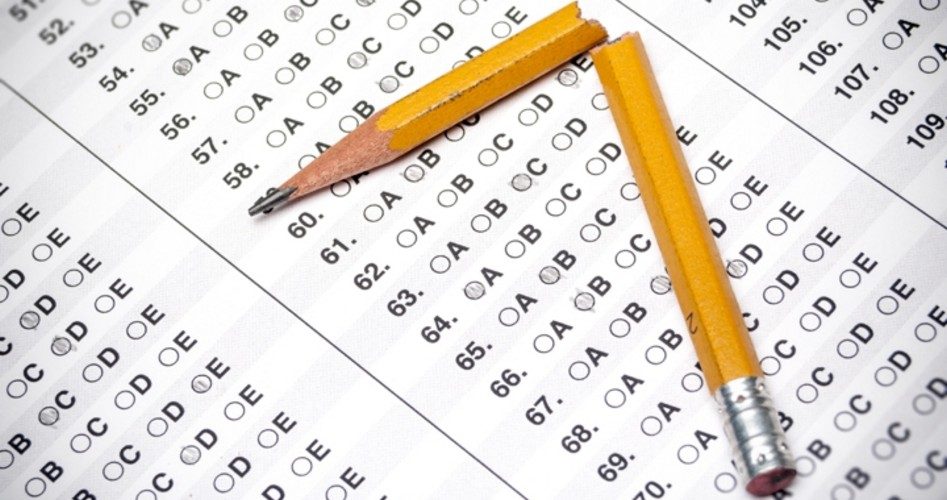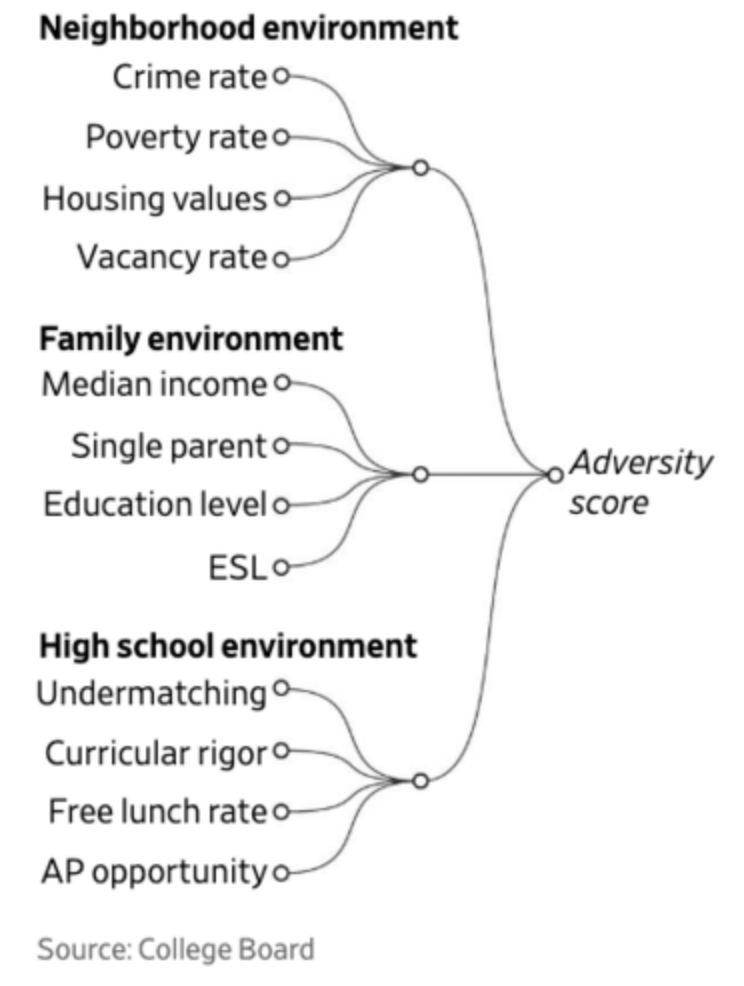
Got adversity? If so, kid, you’ll be advantaged when your Scholastic Aptitude Test (SAT) score is assessed. That is, if you’ve experienced “adversity” as the social engineers define it.
It’s all part of a new scheme to increase “diversity” in college admissions and in what bachelor degrees are associated with: prestigious careers and higher-income brackets.
At issue is the new “adversity score” adopted by the College Board publishers of the SAT, as the New York Times explains:
The company announced on Thursday that it will include a new rating, which is widely being referred to as an “adversity score,” of between 1 and 100 on students’ test results. An average score is 50, and higher numbers mean more disadvantage. The score will be calculated using 15 factors, including the relative quality of the student’s high school and the crime rate and poverty level of the student’s neighborhood.
The rating will not affect students’ test scores, and will be reported only to college admissions officials as part of a larger package of data on each test taker.
The Wall Street Journal relates the relevant adversity score factors in the graphic below:

Of course, anything (“adversity score”) making you feel like you’re in a George Orwell story is a huge red flag. As for specificity, though, Fox News host Tucker Carlson discussed some of the problems that will inevitably arise from this scheme Thursday evening (video below). His commentary on the adversity score assessment was summed up by American Thinker:
It’s kept a secret. “Trust us,” in effect, they say. There is no appeal possible. And as a black box whose inner workings are secret, it becomes an ideal vehicle for engineering the racial results admissions offices desire.
It is easily gamed — fake addresses, even possible income manipulation (by claiming a lot of depreciation, for instance, the way that Donald Trump reported negative income in the 1980s).
And it provides perverse incentives, rewarding victim status, not achievement. Parents who start out with no advantages and work hard to provide a better life for their kids will now be handicapping them if they have high incomes and live in nice neighborhoods with good schools.
Moreover, as Carlson’s segment title puts it, “New Score Rates Students Based on Privilege.” So with the secrecy surrounding the assessments and with “white privilege” propaganda rife, is it inconceivable that being white could be consciously factored into adversity scores?
Note that the focus is generally on the white-black achievement gap despite Asians scoring higher on the SAT than whites do. This focus is common, too. Just consider how NYC mayor “Bolshevik” Bill de Blasio wants to diversify his city’s specialty schools (e.g., Bronx Science, Brooklyn Tech) because blacks and Hispanics are “underrepresented” in them. But here’s the kicker:
So are whites.
It’s Asians who are “overrepresented.” So is the problem Asian privilege?
We should also wonder if this SAT scheme really helps anyone. As to the obvious, American Thinker writes, “Since college admissions are a zero-sum issue (for every person who gets in, another person is denied submission) [sic], what is called an ‘adversity’ score used to grant an advantage becomes a ‘privilege’ penalty for those who do not have an adversity plus added to their admissions file. This is precisely why the federal prosecutions of families that paid bribes to gain advantages for their children in elite college admissions are harming the public. Their crimes have victims. So does the SAT’s scheme.”
But what of the scheme’s supposed beneficiaries? Professor Walter E. Williams pointed out in 2008 that affirmative-action policies hurt minorities by creating “academic mismatches”: Instead of lower-performing students being in less prestigious schools in which they can flourish, they’re thrust into more rigorous academic environments and may flunk out before coming to flower.
The sad truth is, though, that the SAT has been manipulated and dumbed down for decades now. The original SAT, first administered to students in 1926, evolved from early IQ tests. Therein lay its value: While no one claims such yardsticks are perfect (nothing in life is), IQ is believed to be two-thirds heritable and the best predictor of academic and career success.
Note, too, that standardized college-admissions tests were developed for the expressed purpose of increasing access to higher education; the idea was that instead of being the exclusive domain of the upper classes, college would be made accessible to any student who showed aptitude. In other words, it was a move toward equality of opportunity.
Since the early 1970s, however, equality of outcome has increasingly become the focus. Thus was the SAT revised in 1974, 1994, and 2005 (a 2016 revision, inspired by competition from the ACT, reversed some of the earlier changes).
To illustrate how brazen the equality-of-outcome push has been, just consider some of the recommendations in a 1988 paper — addressing girls’ lower SAT scores — that was sponsored by the federal government:
(1) remove items having large response differences between the sexes unless balanced by other items; (2) manipulate mean scores on the verbal test so that males and females score equally; (3) ensure that verbal content on math items favors girls.
But what of favoring meritocracy? Lost in this Equality Doctrine orgy is that tests and college admissions aren’t just about providing opportunity. They’re about ensuring competence, that the right people are in the right jobs.
Ignoring this leads to outrages such as Obama-era FAA “diversity” rules. Created because the air-traffic-control corps was “too white,” they favor air traffic control candidates whose worst high-school subject was science, who played a lot of sports, and who are unemployed over licensed pilots and those with extensive air traffic control knowledge (video below).
But do you want your plane guided, your child operated on, or to be defended in court by an “affirmative-action baby” (to quote Justice Sonya Sotomayor’s self-characterization)? And do you think the Chinese, who aim to replace us as the world’s hegemon, are prioritizing diversity over meritocracy?
Something tells me that in civilizational struggles, you don’t get affirmative-action points for adversity.
Photo: michaelquirk/iStock/Getty Images Plus



